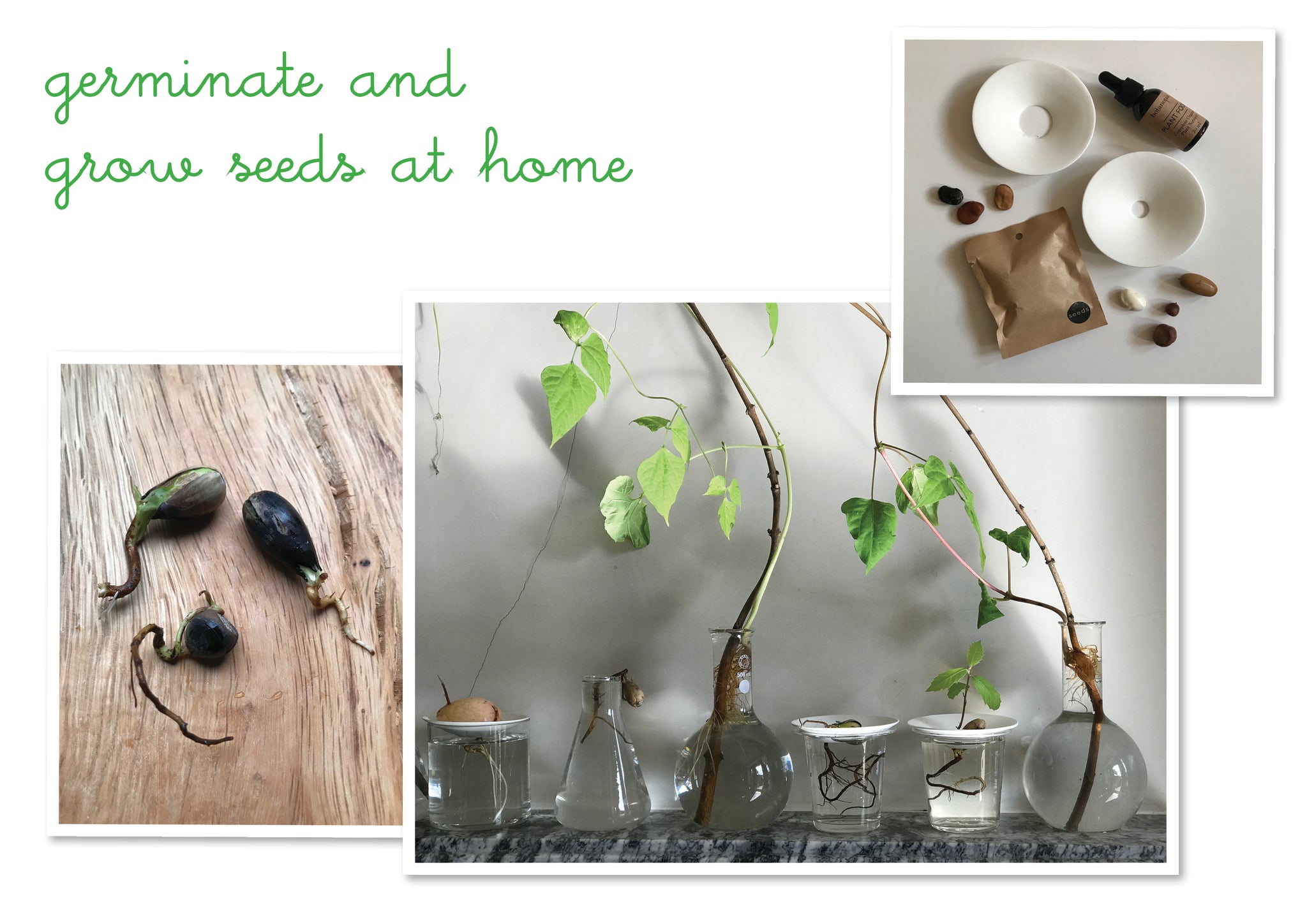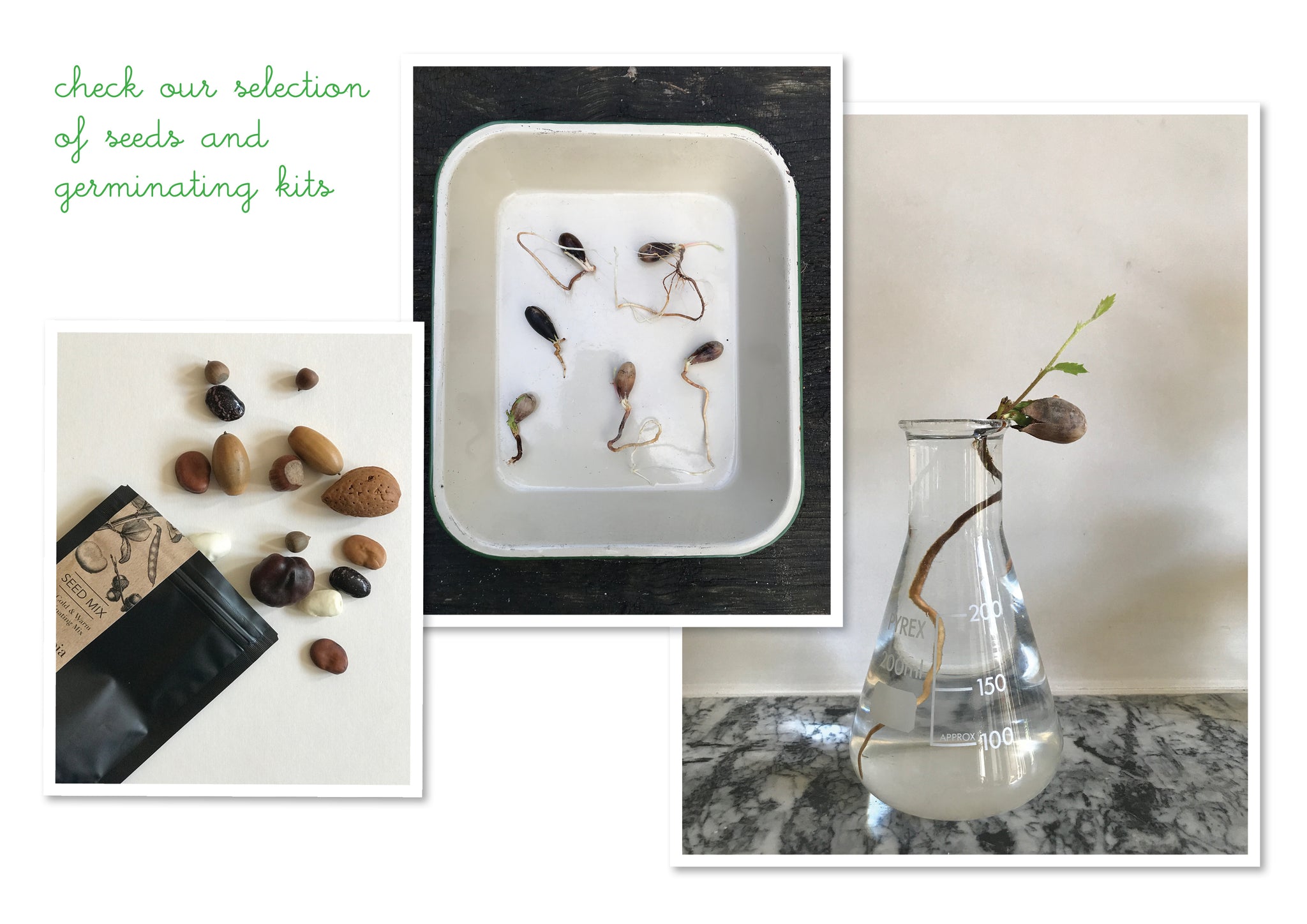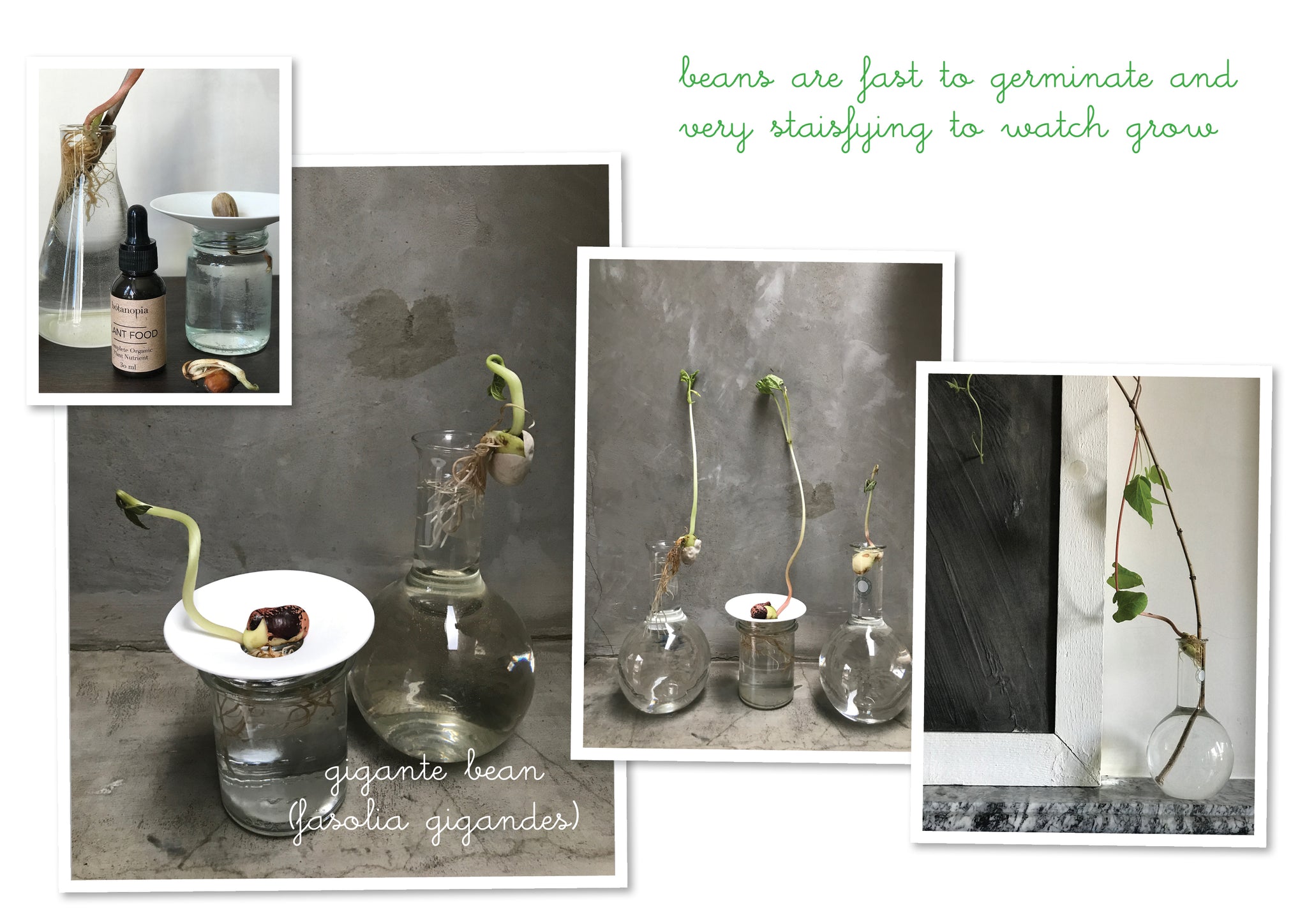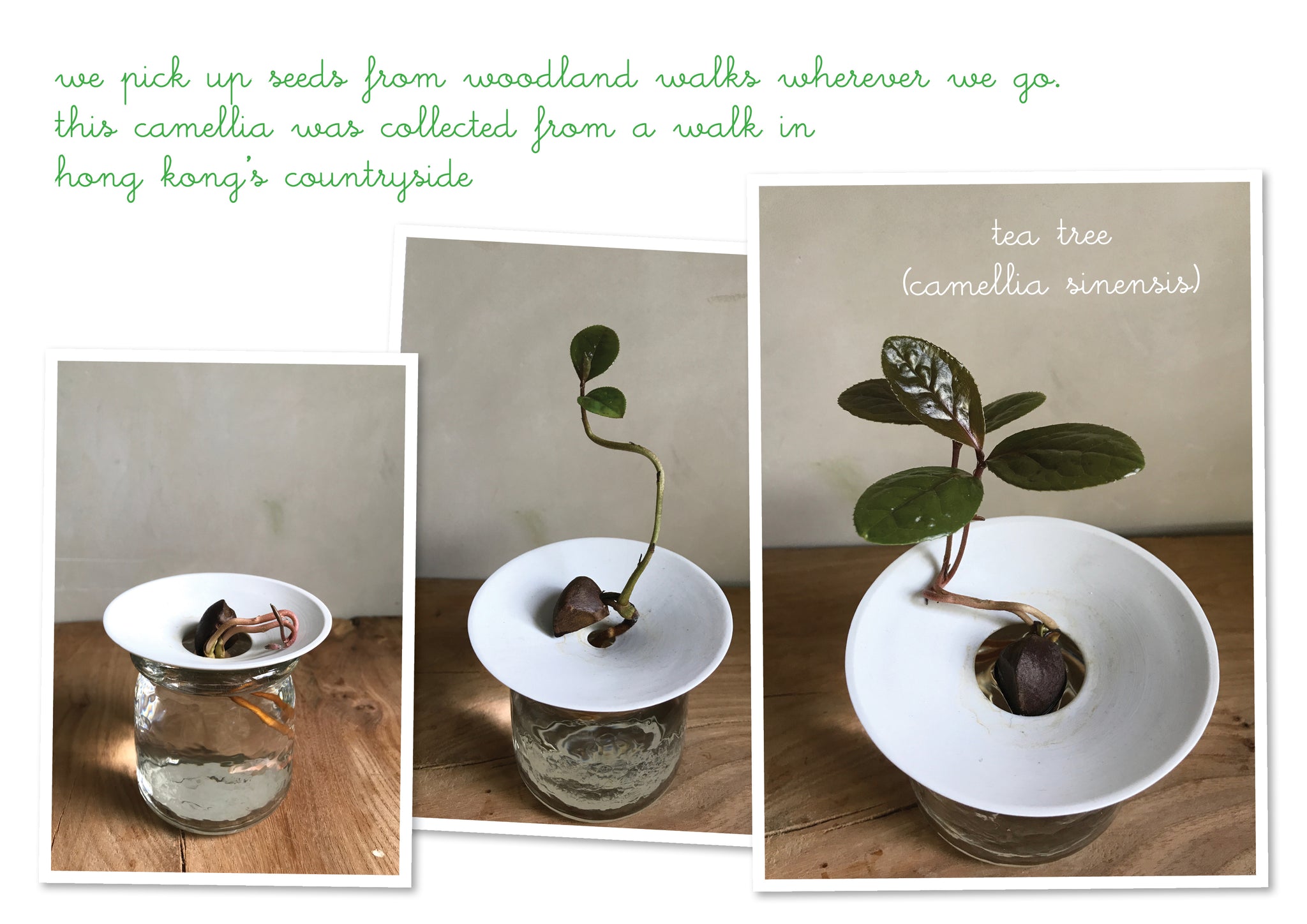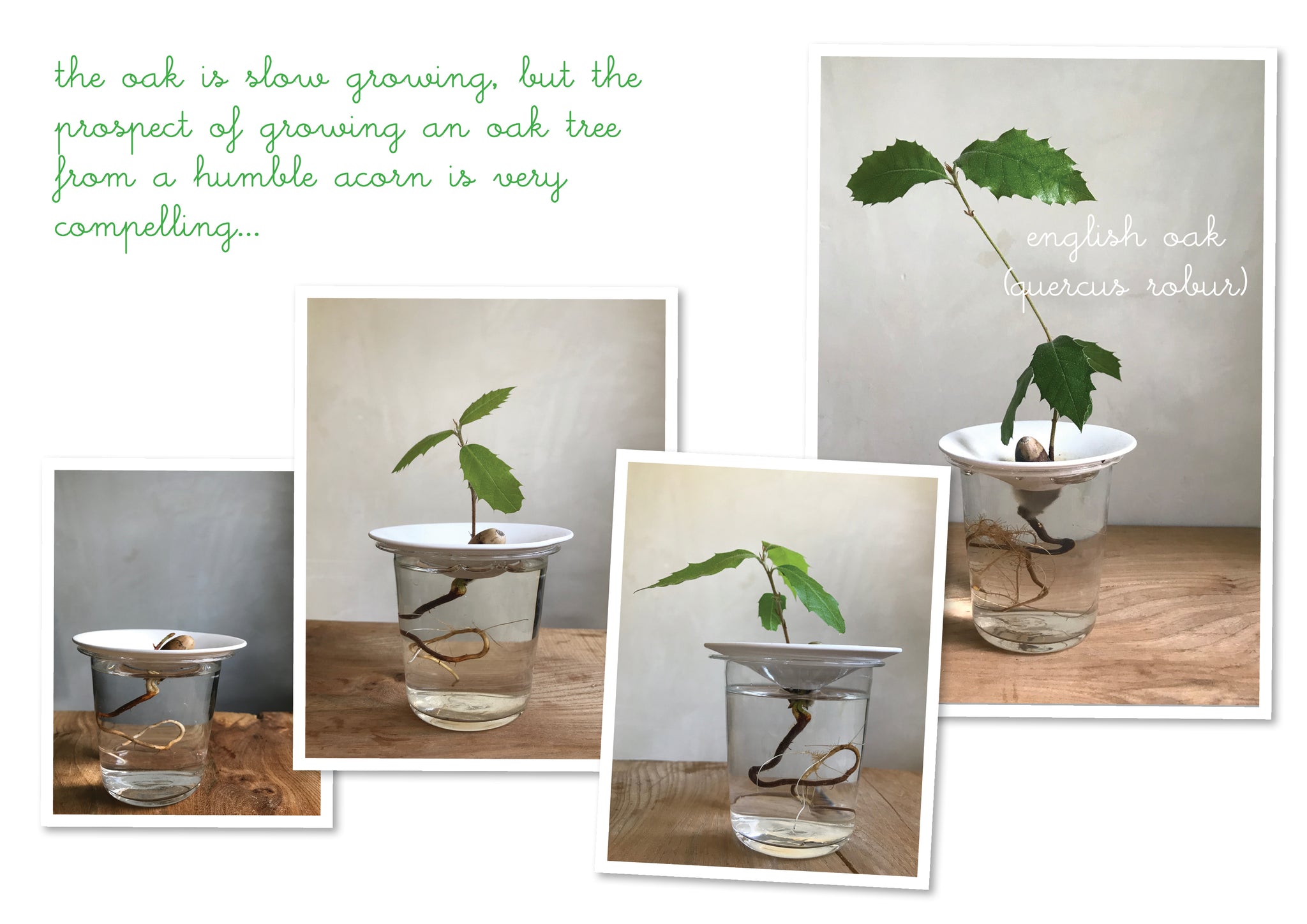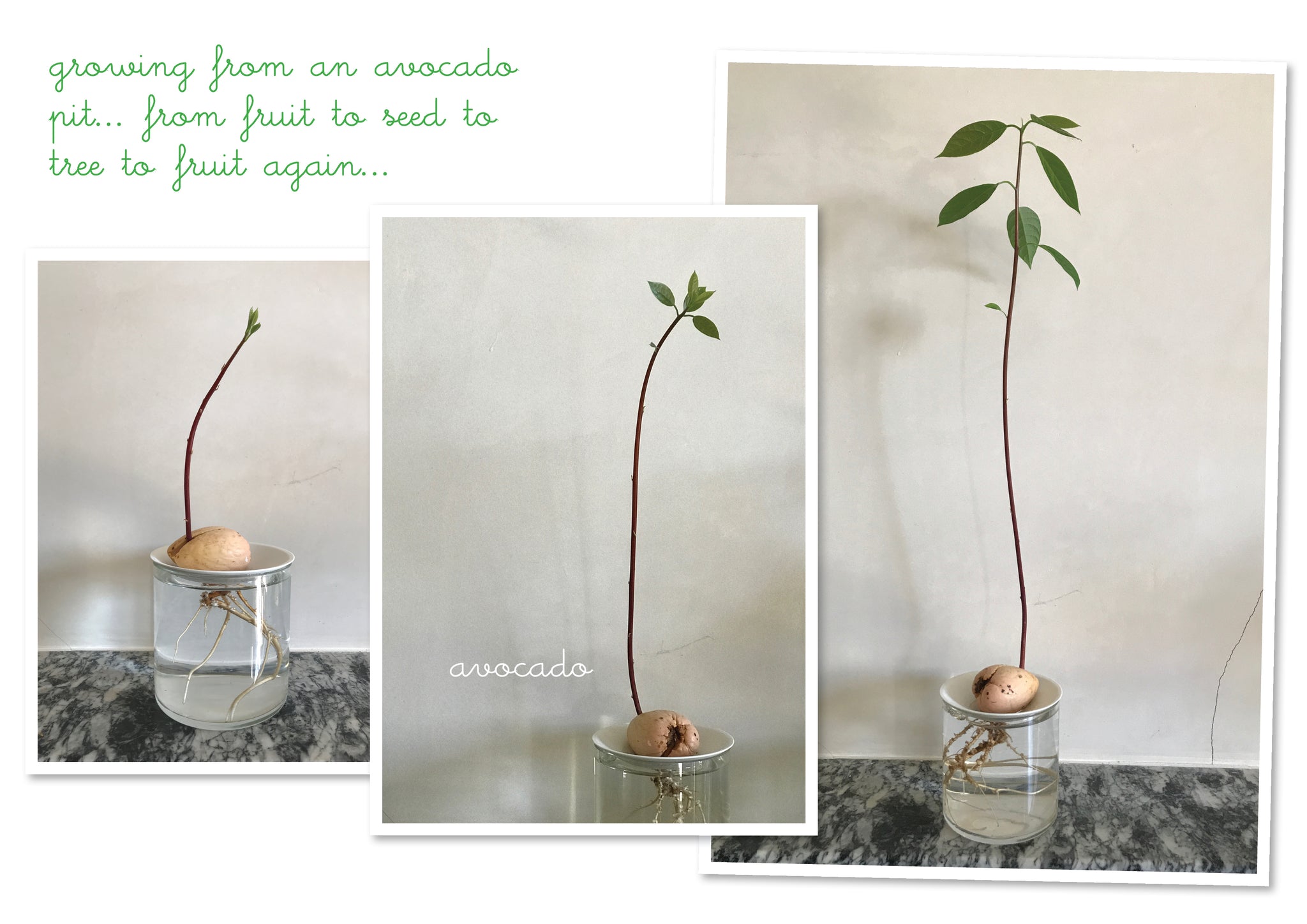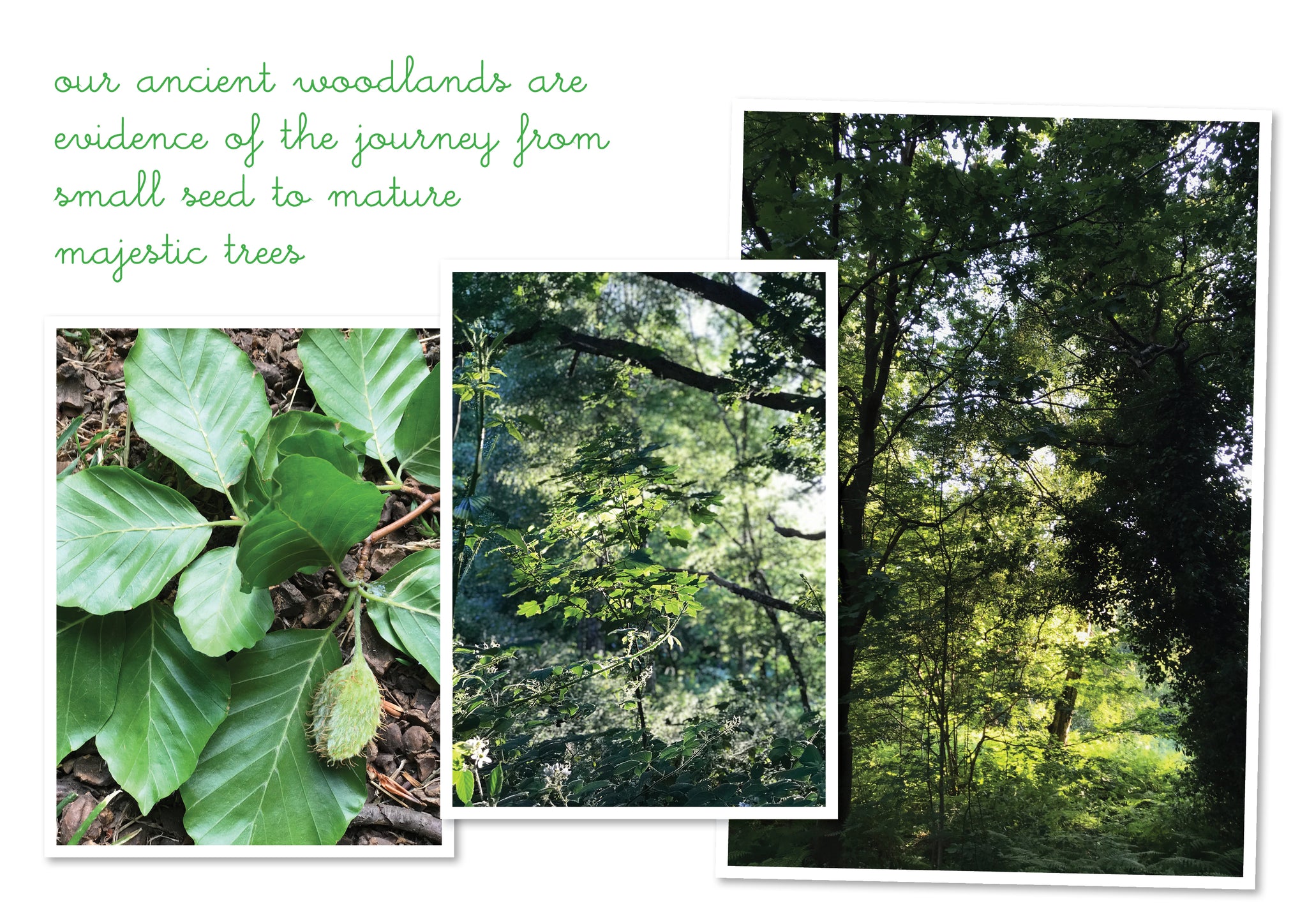the beginning of this year brought an exciting promise of an art exhibition for my artist husband, focused on seeds, spring, the cycle of nature and regeneration, and hope for the future. while he was painting and creating I was busy coaxing seeds into germination so that we could have some growing art to display alongside his paintings.
then came lockdown. the exhibition got postponed, we closed our studio, relocated our businesses and sprouting seeds to home and settled down to a quieter pace of life. during this unprecedented time, like so many people, we found ourselves appreciating nature more than ever before. the birds seemed noisier, the bees busier and we had time to marvel at the slow but thrilling germination of our seeds as they began to send roots down and sprouts up towards the light.
our seedlings, dotted around the house in glass jars on shelves and mantelpiece, became our ‘babies’. we learnt the value of patience and discovered that growing from seed made us appreciate every millimetre of growth, each new leaf and the beauty of the root structure below.
an essential accessory for slow-living, our germination kits are an excellent teaching tool for children, providing living botany lessons at home. it’s therapeutic to watch nature come to life and teaches us not to take things for granted. watching trees grow helps us appreciate the extraordinary progression from little seeds to the mighty, ancient woodlands that bring vital life to our cities and the countryside.
hedgehog’s germination kits include plates, plant food and a selection of seeds. but it’s fun to experiment with your own seeds too, whether it’s avocados, lemons, oranges, almonds or hazelnuts from the pantry, or seeds collected on family walks.
our seed kits contain a small pack of slow and fast germinating seeds, a small and a large porcelain plate and a little bottle of organic plant food for when their roots start to grow. that’s all you need!
there are two types of seeds: cold and warm. seeds can be germinated inside all year round, but they need some simple tricks to hoodwink them into the appropriate season. cold-climate seeds need slow germination or ‘stratification’; they include spanish and english oak, chestnut and hazelnut. warm-climate seeds, such as almonds, broad beans, gigantes and styrian bean require fast germination.
method
soak the seed in a jar of water for 48 hours, changing the water daily.
remove the seed and wrap it loosely in a damp paper towel and enclose it in a self seal plastic pouch.
then, depending if it’s a ‘cold’ or ‘warm seed’, either place in the fridge or leave in a warm spot in the house for two to three weeks.
keep an eye on it!
when the roots are long enough it’s time to place it on one of our special porcelain plates over a glass jar with water and watch it develop.
enjoy!
for tutorials on how to germinate visit:
botanopia.com/how-to-sprout/


